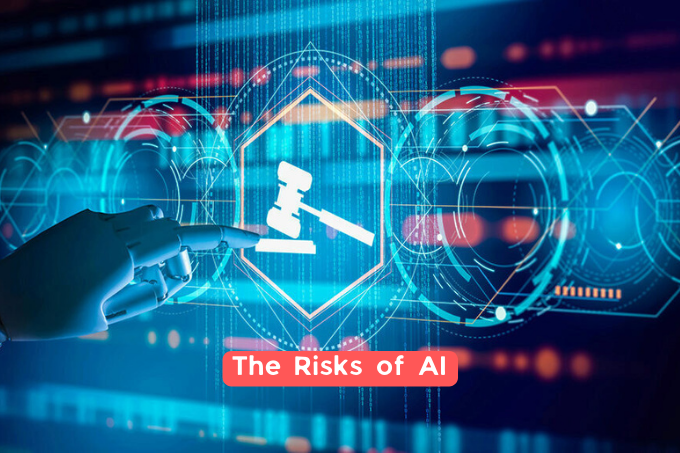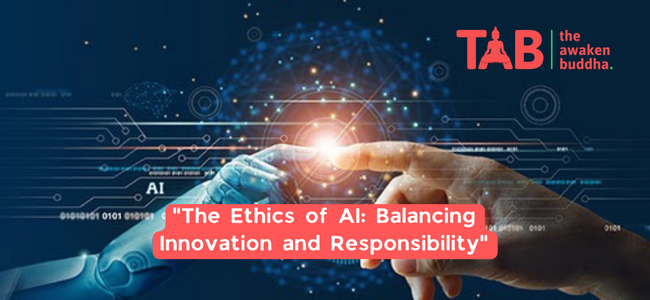Artificial Intelligence (AI) has evolved increasingly prevalent in recent years, and its impact on society is significant. While AI can potentially bring enormous benefits, it also poses ethical concerns. The development and deployment of AI require a balance between innovation and responsibility. This article explores the ethics of AI, including the potential benefits and risks of its implementation, the ethical considerations that should guide its development, and the responsibilities of stakeholders involved in AI.
Introduction
AI is revolutionizing how we live and work, and its impact on society is already apparent. From autonomous vehicles to medical diagnosis, AI is transforming industries and offering new opportunities for innovation. However, as AI becomes more sophisticated, it also poses ethical challenges. Balancing innovation and responsibility is essential to ensure that AI serves the greater good.
The Benefits of AI
The potential benefits of AI are vast, including increased efficiency, improved safety, and enhanced decision-making capabilities. AI can automate repetitive tasks, allowing humans to focus on more complex and creative work. It can also reduce human error and improve safety in high-risk industries such as aviation and mining. Additionally, AI can explore vast amounts of data and provide insights that humans may be unable to discern.
The Risks of AI

Despite its potential benefits, AI also poses significant risks. One of the most critical concerns is the potential for AI to perpetuate and amplify bias. Machine learning algorithms can learn from limited data sets, resulting in discriminatory outcomes. Additionally, AI can pose risks to privacy and security, especially when dealing with sensitive personal information.
Ethical Considerations in AI Development

Given the risks associated with AI, ethical considerations must guide its development. One of the primary ethical concerns is ensuring that AI is developed and deployed in fair, transparent, and accountable ways. This requires designing AI systems that are explainable and auditable, enabling stakeholders to understand how the system makes decisions and to identify and address any biases or errors.
Another ethical consideration is ensuring that AI is developed and deployed in ways that respect privacy and human dignity. This requires adopting robust privacy protections and ensuring that AI systems are not used to discriminate against or harm individuals or groups.
The Responsibilities of AI Stakeholders
Developing and deploying AI responsibly is a shared responsibility, requiring collaboration between industry, government, academia, and civil society. Industry stakeholders must prioritize ethical considerations in AI development and deployment, adopting ethical frameworks and ensuring their systems are designed and audited to identify and address potential biases and risks.
Governments are responsible for developing regulatory frameworks that promote ethical AI and protect individuals from harm. This requires working with industry stakeholders to ensure that AI is developed and expanded in ways that are transparent, accountable, and respectful of privacy and human dignity.
Academia has a role in advancing the ethical considerations of AI and ensuring that students are trained to develop and deploy AI responsibly. Finally, civil society is responsible for engaging in the AI debate, promoting ethical AI, and advocating for protecting individual rights and freedoms.
Conclusion
The ethics of AI is a complex and evolving field, requiring a balance between innovation and responsibility. While AI offers enormous potential benefits, it also poses significant risks that must be addressed. Ethical considerations must guide the development and deployment of AI, and stakeholders must work collaboratively to ensure that AI serves the greater good. By balancing innovation and responsibility, we can ensure that AI is a force for good in our society.
FAQs
What is the primary ethical concern with AI?
The primary ethical concern with AI is the potential for biased outcomes resulting from machine learning algorithms that learn from limited data sets.
How can AI developers address potential biases in their systems?
AI developers can address potential biases in their systems by designing AI systems that are transparent and auditable. This means developing explainable algorithms, so stakeholders can understand how decisions are made. Additionally, developers can implement techniques such as data augmentation to diversify the data sets used to train AI models and reduce the risk of bias.
What is the responsibility of governments in the ethics of AI?
Governments are responsible for developing regulatory frameworks that promote ethical AI and protect individuals from harm. This involves working with industry stakeholders to ensure that AI is developed and expanded in ways that are transparent, accountable, and respectful of privacy and human dignity.
How can civil society engage in the AI debate?
Civil society can engage in the AI debate by advocating for ethical AI and protecting individual rights and freedoms. This involves participating in public discussions, providing feedback on proposed regulations, and working with stakeholders to promote responsible AI development.
What are the potential benefits of AI?
The potential benefits of AI are vast and include increased efficiency, improved safety, and enhanced decision-making capabilities. AI can automate repetitive tasks, reduce human error, and explore vast amounts of data to provide insights that humans may be unable to discern.










